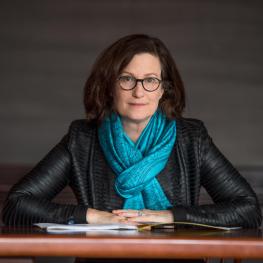Is Man a "Sabbatical Animal"? Giorgio Agamben, Franz Rosenzweig, and A. J. Heschel
Twentieth Annual Joseph and Rebecca Meyerhoff Lecture
Bodek Lounge
Houston Hall
3417 Spruce St
Philadelphia, PA 19104
Agamben’s claim that “man is a sabbatical animal” enlists the Judaic idea of Sabbath to limit the 24/7 temporality of capitalism under neoliberalism. He affiliates the idea of Sabbath—the day of rest—with his ontology of inoperativity, of which schole, the Greek notion of leisure, is another instance. These suspensions of work are joined together by Agamben and juxtaposed to instrumentality or “use", as such. This lecture will interrogate Agamben’s claims, putting him into dialogue with Judaic ideas of Sabbath explored by Franz Rosenzweig and A. J. Heschel. Further, Honig argues for the necessary implication of the weekly Sabbath with the other Sabbaths—land sabbatical, debt sabbatical, and the emancipatory Jubilee—whose aim is not only temporary relief from work or injustice, but the periodic reestablishment of equality.
Featuring
Bonnie Honig
Brown University
Bonnie Honig is Nancy Duke Lewis Professor of Modern Culture and Media and Political Science at Brown University, and Affiliated Research Professor at the American Bar Foundation, Chicago. She is a prize-winning author of several books, including: Political Theory and the Displacement of Politics (Cornell 1993; Scripps Prize, 1994), Democracy and the Foreigner (Princeton, 2001), Emergency Politics: Paradox, Law, Democracy (2009) (cowinner of the David Easton Prize), and Antigone, Interrupted (Cambridge, 2013). Editor and coeditor of several collections, her most recent (with Lori Marso) is Politics, Theory, and Film: Critical Encounters with Lars von Trier, (Oxford, 2016). Currently, she is finishing a book called Pubic Things (fc 2017, Fordham University Press series Thinking Out Loud) and working on a new book called The Lost Sabbath.
Cosponsors
Department of Jewish Studies, Department of History
